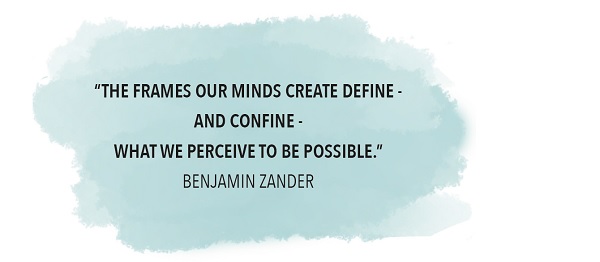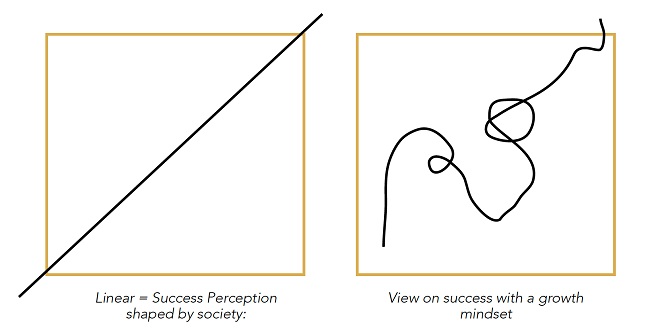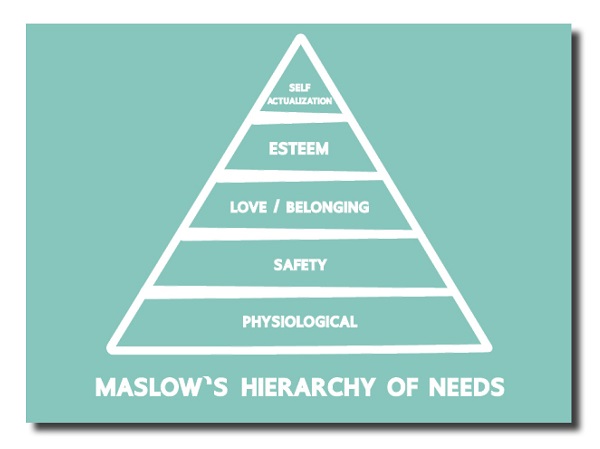
Research Paper By Katharina Von Knobloch
(Expat Partner Coach, UNITED STATES)
Supporting expat partners redefining their professional identity abroad

Introduction
This research paper analyzes the modern career struggles of Expat Partners during their time abroad and how coaching can help to start a new professional chapter in a different country. Several social trends influence the adaptation process for Expat Partners. This paper describes the two major trends in global mobility affecting the Expat Partner and explains a practical coaching approach for the client. This research paper focuses on Expat Partners as clients. For clarification, I want to introduce the meaning of Expat Partner throughout this paper:
Expat Partner
The accompanying partner on an international assignment. The working partner is sent abroad by a company as a company transferee for a limited amount of time (usually 3-5 years per country). The spouse (mainly female) is joining the partner abroad, pausing local career engagements. Depending on interest, personal situation and work permit regulations, the Expat Partner can plan a work commitment abroad.
Context: Shaping global mobility trends
Several trends are shaping the global mobility industry, changing the way companies are planning their human resource strategies and affecting the nature of global assignments. In the following, I want to shed light on two major trends that directly affect the Expat Partner (=the potential coaching client).
Dual-Career Couples
Nowadays, it is very common that both partners are working in a long-term relationship. Often both parties are contributing an essential part to the household income. The number of female partners working has significantly increased over the last decades. The so-called phenomenon of dual-career couples profoundly affects global expat assignments. More and more international transfers are turned down as the partner is not ready to leave his or her job. A recent study by Ernst & Young amongst Expat Partners around the world revealed that it is the new norm for Expat Partners to work before moving abroad. While „only“ 67% of the baby boomer partners have been working before moving abroad, this number has increased to 90% amongst Generation Y.
However, several studies indicate that only 20% of Expat Partners are actually employed during the time abroad. There is a considerable gap between the employment rate before and during an international assignment. While many partners chose to focus on family life as the second income is not always necessary any longer, others are struggling to find work abroad due to cultural barriers, legal status, or simply due to a missing network that connects someone to the local job market. 60% of Expat Partners within a survey by Expat Communication rate the application process abroad as painful, long, and difficult.
Hence, the question of professional fulfilment for the Expat Partner is more than ever very significant. Companies who are sending employees overseas are more aware of the partner‘s professional situation as a crucial factor for assignment success. An unhappy Expat Partner is still the number one reason for an early return which is not only costly for the company but can also be a severe test to the relationship itself.
Serial-Expatriation
Thanks to my work within the expat community I have been able to talk to countless Expat Partners about their professional identity, their career planning approach, and their current needs. Expat Partners who decided not to work during the time abroad have based this decision on the expected limited time abroad. Most employees are sent overseas for a timeframe of 3 to 5 years as a maximum.
Recently, the award-winning international business scholar Dr McNulty who specializes in expatriation and global HR research coined the term serial expatriation. According to Dr.McNulty, it is more likely for an expat to be sent abroad again than returning back home for good. Reasons behind that are manifold. It can be triggered externally by the company. Employees who have been able to accomplish work projects successfully are more likely to be asked again on an international assignment as the risk of failure is low. Also, the trigger can be internally when the family actively chooses to move abroad again as expatriation changes your global perception forever and you might be interested in indulging yourself even more in an intercultural experience.
Many Expat Partners find themselves on a 15-year career break after returning home for good. While this does not have to harm a career, it is crucial to taken it into account while planning the move abroad.
In conclusion, one can say that the support of expat partner is getting more complex and should not only focus on cultural adaptation but also on the question of how to find professional fulfilment abroad.
The positive influence of coaching on expat partner
Expatriation brings change to every dimension of life. The professional life is only one dimension amongst many – however, it is an essential factor that gives us acknowledgment and identity. In times of change and turmoil, career disorientation brings additional discomfort-into the equation, and many Expat Partner raises the question: What to do with my life?
It is a time of seeking and search for orientation where coaching can bring new insights and questions old beliefs that might not be helpful in this new phase of life.
In the following, I am introducing common struggles of Expat Partners and coaching approaches to help.
Reframing Perspectives
Reframing is an essential part of coaching and a very powerful angle for Expat Partners. Reframing helps the client to reflect on the problem from different angles to find a customized solution. Many Expat Partners find themselves in a situation where they can‘t change the circumstances, but they can change their personal attitude. Lacking a valid work permit, for example, can be a dead-end for many in terms of career planning. Most of the times nothing can be done about that. However, by using reframing techniques with the client, we can address the attitude of the client and if the current view on the situation is actually helping.

One approach can be to shed light on the current situation from different sides:
Mirroring: It sounds like…
Looking out for disempowering beliefs and checking in with the client whether the perception is the mirroring the actual situation.
Valuing: How is that serving you?
Checking in with the client whether behaviour and view on things are adding value.
Questioning: Is that true?
Challenging beliefs and checking in whether this is an actual fact or a constructed argument.

Exercise by Benjamin Zander.
Triggering outside the box thinking Exercises like the one by Benjamin Zander (picture on the right) reminds us how important it is to look outside the known. In this exercise, the client is asked to connect all dots in one go. It is only possible by drawing outside the box. In expatriation, clients are faced with similar challenges where they are required to think outside the box. Coaching conversations and exercises like these help the client to think more creatively about potential solutions.
Fixed Mindset
The theory of a fixed mindset vs. growth mindset is beneficial in the context of expatriate coaching. Referring to the initial example of continuing one‘s career abroad, the move overseas can often be the first big hit on a linear career path. Many clients describe their former career path as linear (pictured left) and more of a turmoil after returning home (pictured right). Coaching can help to reflect on this change and see it in a more empowering context.

Confidence
The application process abroad as well as cultural adaption challenges the confidence of many Expat Partners. Insecurity on every level triggers personal insecurity in one‘s own skills and talents. Coaching can help to remind the client of his or her own abilities and reflect on accomplishments.
One helpful tool here is the strengths finder by the VIA Institute on Character that highlights the strengths and not the weaknesses. In this way, it does not only shed light on the skills and interests of the client but also equips him or her for finding a new professional passion abroad by articulating those.
Example of VIA Strengths Finder
Values
 Expatriation offers an excellent opportunity to reflect on current values and life purposes as it is often triggered realignment. Coaching can create the perfect room for reflection and evaluation of current and future goals in life. Expat clients often highlight value exercises as having a long after effect. Values define who we are and how we relate to the world around us. Often expats set goals for the time abroad. Coaching can help to check whether those goals are aligned with the values of the client. In terms of career planning, bringing clarity on the value front can help to decide on potential career paths and check whether further education in a completely different field compared to the former career would be an option.
Expatriation offers an excellent opportunity to reflect on current values and life purposes as it is often triggered realignment. Coaching can create the perfect room for reflection and evaluation of current and future goals in life. Expat clients often highlight value exercises as having a long after effect. Values define who we are and how we relate to the world around us. Often expats set goals for the time abroad. Coaching can help to check whether those goals are aligned with the values of the client. In terms of career planning, bringing clarity on the value front can help to decide on potential career paths and check whether further education in a completely different field compared to the former career would be an option.
Maslow

According to the American psychologist Abraham Maslow, humans have needs, and one can categorize these needs into five levels. He argues that as humans, we ultimately strive for “self-actualization”, but have to cover our basic needs before we’re able to concentrate on higher goals.
This concept is fascinating especially for expats as they are in the unfamiliar situation of providing for the first couple of categories all over again after living a very comfortable life back home. Not often in life do we face this unique challenge and serial expat go through this process again and again.
Using the Maslow pyramid in coaching allows us to acknowledge everything that is going on in an expat‘s life and demonstrate that we need time and energy to establish a new normal.
After moving abroad a lot of energy is required to establish a new home which comes along with feeling very busy for quite some time. However, once a home is created and new routines developed, the void of not working can potentially be huge. Coaching is hence not only a tool to acknowledge the steps taken so far but allows to focus on the levels „esteem“ and „self-actualization“ in great detail.
Conclusion
Coaching is excellent support for expat partners who are moving abroad and are confronted with the void that leaving a former career path can bring along. Coaching helps to explore options, to question beliefs, and to be held accountable by a sparring partner. While the client is always resourceful, the coach helps him to reconnect with strengths and skills.
The coach supports the expat precisely at the moment that it is needed – not only before moving abroad. Coaching is a dialogue between the expatriate and the coach to establish values, beliefs, and goals and helps to identify a plan to to meet those goals. The coach walks along the expatriate side, always on-judgmental, taking in mind that the coach should not prevent learning by one‘s own experiences but foster curiosity and open-mindedness towards new opportunities.
Establishing a new career abroad requires courage, resilience, and confidence. Coaching is the perfect approach to foster the right mindset to take that step in an empowered spirit.
References
Maslow pyramid: https://www.simplypsychology.org/maslow.html
VIA Institute on Character: http://www.viacharacter.org/www/
Ernst&Young Survey on Relocating Partners: https://www.ey.com/Publication/vwLUAssets/ey-2018-relocating-partner-survey-final-report/$File/ey-2018-relocating-partner-survey-final-report.pdf
Own survey amongst 200 Expat Partners by Katharina von Knobloch: http://www.sharethelove.blog/career/expatpartnersurvey2019/
Fixed Mindset vs. Growth Mindset: https://positivepsychologyprogram.com/growth-mindset-vs-fixed-mindset/
Rosamund & Benjamin Zander (2000): The art of possibility, published by the Penguin Group
Dr McNulty: https://expatresearch.com/dual-careers/